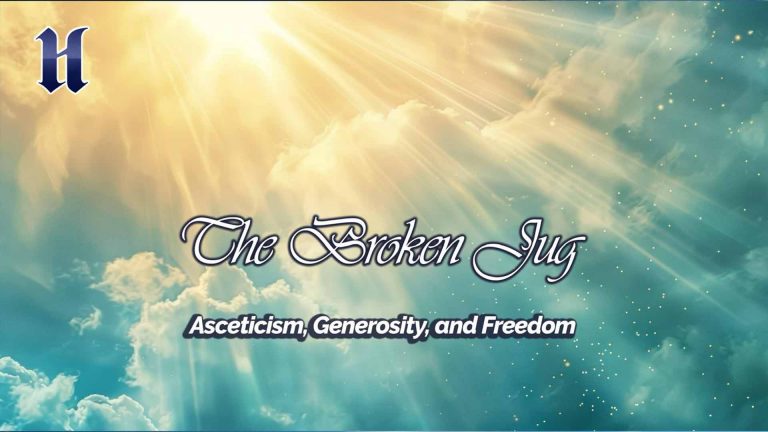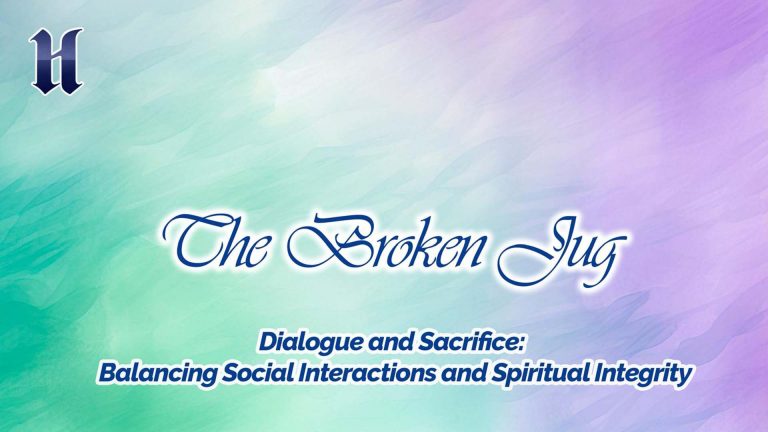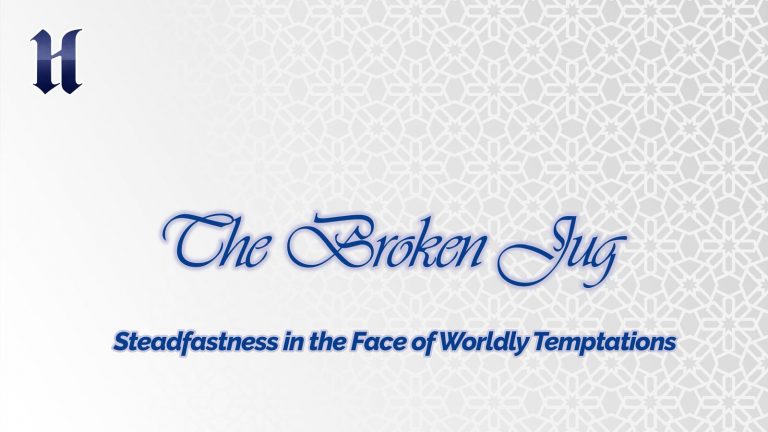The core responsibility of believers dedicated to elevating Allah’s message mirrors the role of an ophthalmologist who removes a patient’s cataracts, restoring clear vision. Their mission is to unveil the truth, allowing people to perceive reality as it is. This pivotal task was also undertaken by the revered Prophets, the honored Companions, their successors, eminent jurists, and esteemed reformers. This endeavor is also known as ‘enjoining what is good and forbidding what is evil’ (Amr bi al-Maruf wa’l-Nahy an al-Munkar), guiding society towards righteousness and away from wrongdoing.
In discussions about maruf, it refers to actions and principles deemed good, right, or honorable by religion. This not only includes behaviors explicitly endorsed by religious teachings but also those acts and customs viewed positively by society, provided they align with the core tenets of the faith. On the other hand, munkar denotes practices and beliefs considered wrong, detestable, or forbidden by the Religion of Islam. This category also captures those actions and thoughts that, by rational and innate human judgment, are seen as repulsive and objectionable. Notably, according to Hanafi jurists, the rational discernment of right and wrong carries significant weight and recognition in religious context.
In essence, a pivotal responsibility for those committed to God and His service involves promoting behaviors and actions considered maruf—those that are positive and virtuous—and discouraging those that are munkar, encompassing negative and reprehensible actions. This responsibility extends to guiding individuals toward what is beneficial and away from what is harmful, applicable to both the material and spiritual realms. This essential duty is encapsulated by the concepts of “giving good tidings” (tabshir) and “warning” (inzar), themes recurrently emphasized in the Quran. Such a duty holds the utmost importance in the eyes of God, which is why it has been entrusted to His most cherished servants, the Prophets.
Two key terms that encapsulate these concepts are تخلية (purification) and تحلية (beautification), each with distinct spellings and pronunciations. These terms represent a two-step process essential in transforming a negative condition into a positive one. The first step, تخلية, involves removing impurities, cleansing sins, and purifying the individual from all forms of spiritual and moral contaminants—ranging from shirk (the grave sin of associating partners with Allah) and misguidance to poor ethics, essentially eradicating all negative emotions and thoughts to restore purity. The second step, تحلية, is about embellishing the individual’s character with faith, the acknowledgment of monotheism, and a profound understanding and love for Allah, enhancing their spiritual and moral beauty.
The foundational task in mentorship, guidance, and education is to first purify the heart, soul, mind, and thoughts of individuals from any negativity, returning them to their inherent purity as Islam suggests every child is born with. Despite their innate purity, individuals may stray from their original virtuous nature due to societal influences. The initial step is to cleanse them of all spiritual blemishes, followed by enriching their essence with devout faith and Divine knowledge, guiding them back to a path aligned with their true, unblemished nature.
In the Primordial Covenant, also known as The Covenant of Alast, every soul responded affirmatively to the Divine inquiry, “Am I not your Lord?” with a unanimous declaration of “Yes, You are [our Lord]. We testify.”[1] Nevertheless, as time passed, many were seduced by worldly distractions, misled by their own egos, succumbed to the deceptions of their perpetual adversary, Satan, and consequently neglected the vow they had pledged to their Creator, failing to honor their sacred agreement. To rekindle this commitment and align their lives with its principles, individuals are urged to reconnect with their inherent purity, allowing for the refinement and clarity of their consciences. Achieving this state of purity ensures that their consciences will faithfully acknowledge and honor Him.
Today, there is an urgent necessity to reassert the oneness of God’s dominion, divinity, and the essence of servitude within our hearts anew.[2] For instance, in initiating the Surah al-Fatiha during prayer, we profess, “All praise is due to Allah, the Lord of all worlds”, thereby acknowledging God’s supreme authority in each prayer. Yet, the question arises: do we fully comprehend the significance of this declaration? Are we truly aware of the messages conveyed by Surah al-Ikhlas, which reaffirms God’s indivisible Deity, or Surah al-Kafirun, which delineates the exclusivity of servitude to Him? Discussing the oneness of servitude means recognizing Allah as the Sole Deity deserving of worship and the ultimate pursuit in every aspect of life; it implies that every action should be exclusively devoted to, performed for, and reflective of His will, seeking His satisfaction in all endeavors. The critical reflection then becomes how deeply we internalize and manifest these truths in our conscience and to what degree we embody His sovereignty and divinity through our prayers, fasting, pilgrimage, almsgiving, and other forms of worship.
Our practices of worship and adherence aim to fulfill our obligations of servitude to Allah. However, the genuineness of these actions invites scrutiny. Can we assert that our devotion is completely devoid of shirk? Have we elevated our servitude to a state of ikhsan (excellence)? Are we persistently in pursuit of faith, earnestness, and a profound love for Allah in our prayers? Inability to affirmatively answer these inquiries suggests that our spiritual journey is far from complete. This endeavor represents the fundamental duty of the faithful, echoing the path tread by the Prophets and the revered Companions, marked by challenges and adversities. Those who persevere through these trials bear a consecrated grief.
Conversely, there are individuals propelled by greed, who fixate on the allure of worldly existence, its authority, and magnificence, in pursuit of such ephemeral gains. It should be acknowledged that the anguish, dread, and adversities they endure far exceed the challenges encountered by the devout. The prospect of losing their wealth and assets inflicts severe distress, immobilizes them, and plunges them into deep despair. The mere possibility of parting with their belongings suffices to provoke anxiety and gnaw at their inner peace. In their desperation to safeguard their material gains and territories, they resort to falsehood, deception, and manipulation. Even more demeaning is their attachment to riches, prestige, and worldly pleasures, which subjugates them, compelling them to ingratiate themselves with those in power in hopes of securing or enhancing their social standing, thereby sacrificing their tranquility and self-respect. Ultimately, such individuals are at risk of forfeiting not just their spiritual salvation but also the chance of attaining peace in their earthly lives.
For such materialists, the inevitability of aging, diminishing youth and health, the onset of illness, and the ultimate reality of death are intolerable. Merely contemplating these certainties inflicts severe anguish. They tenaciously hold onto their earthly assets, troubled even by concerns for the welfare of their descendants. Some achieve a fragile equilibrium in their existence solely through the use of antidepressants. It might be proposed by a discerning psychiatrist that a number of them require confinement in an institution to avert self-harm or harm to others, highlighting the profound disarray and despair that can accompany a life excessively focused on material gain and the denial of life’s natural processes.
Individuals who relentlessly pursue worldly pleasures and seek fulfillment in material possessions inevitably grapple with envy, a corrosive emotion that devastates them internally before impacting others. Envy not only damages the soul of the envious but, when opportunities arise, propels them to harm those they resent. Such a profound malady transcends the remedial capacities of psychiatric care, driving individuals to commit acts of cruelty against the faithful that even the faithless would shun. In contemporary times, we often witness envious despots concocting what they claim to be “reasonable(!) suspicions” to legitimize the infliction of suffering upon innocents, including women and children, without regard for age or gender. Their objectives are clear: to quash voices of opposition, extend their dominion, and enlarge their realms of influence, all under the guise of maintaining order and security.
Through their oppressive actions, these individuals not only cast shadows over their earthly lives but also compromise their prospects in the Hereafter. Driven by insatiable greed, envy, and avarice, they find themselves increasingly estranged from God, gradually losing their moral compass, sense of equilibrium, and adherence to ethical norms. This distancing from Divine guidance leads to a weakening in their devotion to God, making them susceptible to the seductions of desire, notoriety, wealth, and other temporal delights. In turning away from the oneness and supremacy of God’s rule and divinity, they erect new idols of their own making, venerating these contemporary false deities. Beside these modern idols, the ancient ones such as Lat, Manat, Uzza, Na’ilah, and Isaf are left far behind.[3] Let us offer gratitude to Allah for guiding us towards such a noble mission and shielding us from the snares of these worldly distractions.
In this era, characterized by the intricate blending of good and evil, beauty and ugliness, praiseworthy acts and condemnable behaviors, along with honesty and deception, the imperative for committed action is more critical than ever. This complexity demands a focused and determined response to navigate and address the challenges presented by such a mix of contrasting values and actions.
Addressing the widespread moral decline pervading society, rejuvenating communities that have strayed from their ethical foundations, and reacquainting humanity with its noblest qualities and stature[4] as delineated in the Quran stand as critical challenges for adherents of the Prophetic tradition. It’s imperative to acknowledge that the solutions to contemporary issues are found within the Quran, the practices of the Prophet (Sunnah), the lives of the Rightly Guided Caliphs, and the methodologies of the Prophet’s Companions.
Accurately diagnosing the maladies of our time and applying the timeless wisdom contained in these sacred texts and examplaries are fundamental responsibilities of the faithful. Persisting in these endeavors, undeterred by the prevailing turmoil, undaunted by the daunting circumstances, and unimpeded by any barriers, is essential for those committed to this spiritual and moral quest.
By endearing Allah to His servants, you earn His love and guardianship. Championing the cause of Allah’s Messenger positions you beneath his Banner of Praise (Liwau’l-Hamd) in the afterlife, securing a place of honor and proximity to the Prophet. This underscores the profound connection between our actions in devotion to Allah and the Messenger, and the spiritual rewards that await in the Hereafter.◄
[1] Surah al-A‘raf, 7:172.
[2] Tawhid al-Rububiyyah refers to the acknowledgment and affirmation of the Oneness of Allah in His Lordship, recognizing that Allah alone is the Creator, Sustainer, Sovereign, and Governor of the universe, and that He is without partner in His actions and decisions. Tawhid al-Uluhiyyah embodies the dedication of all forms of worship, whether apparent or hidden, verbal or action-based, exclusively to Allah, affirming that He alone deserves to be worshipped and that no worship should be directed to anyone or anything besides Him. Tawhid al-Ubudiyyah emphasizes the servitude of mankind solely to Allah, living a life of obedience and submission to His commands, and refraining from the worship of any other entities. Collectively, these aspects of Tawhid serve to reinforce the singularity of Allah’s sovereignty, divinity, and the servitude owed to Him by humanity, inviting hearts to recommit to the unity of God in all aspects of life.
[3] Before the advent of Islam, various idols such as Lat, Manat, Uzza, Na’ilah, and Isaf were worshipped in pre-Islamic Arabia. These idols were eradicated by Prophet Muhammad (pbuh) following the conquest of Mecca, marking a pivotal moment in the establishment of monotheism.
[4] Ahsan al-taqwim.






